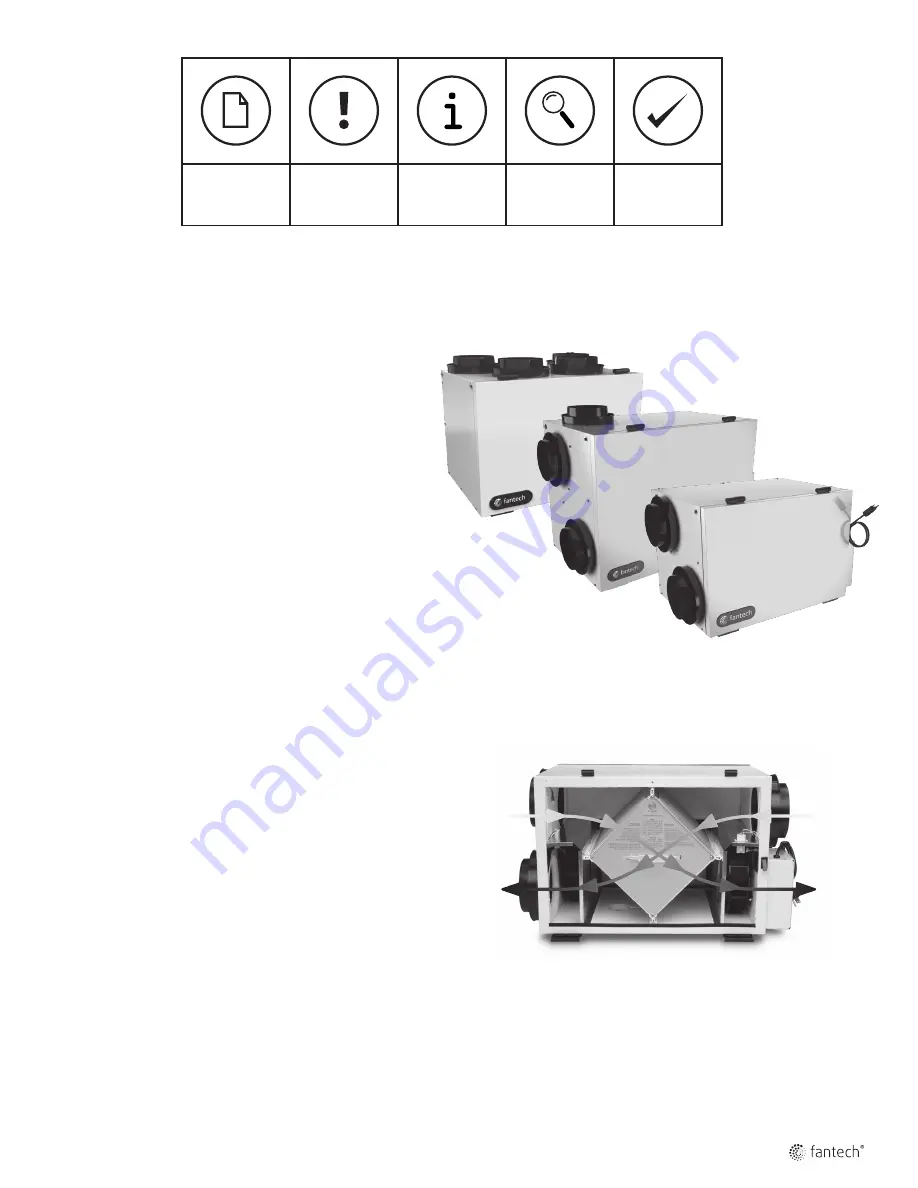
3
What are HRVs?
To understand these products and their functions, here are a few
things to remember.
Heat Recovery Ventilators (HRVs)
are recommended for colder areas of the country that have longer
heating seasons as well as drier desert areas of the South.
Heat Recovery Ventilators are complete whole house ventilation
systems that incorporate a supply fan and an exhaust fan in one
unit. The supply fan draws fresh air in from the outside and the
exhaust fan pushes stale contaminated air out. The two air streams
are separated by a heat recovery core which tempers the air,
making it the most comfortable solution for a healthy indoor
environment.
For information on how these units can help you save energy and
lower heating or cooling costs, read “How Do They Work?”.
Port Configuration
Five Port Models
feature motorized damper for recirculation mode and defrost. Positive shut off of supply port when unit is in standby.
Four Port Models
provide constant ventilation even in defrost mode without the need for additional parts. An exhaust only (fan shut down) defrost
strategy is an effective method at an affordable price.
Note
Warning/
Important
note
Information
Technical
information
Practical tip
How do They Work
Heat Recovery Ventilators (HRVs)
An HRV is designed to be a cost-effective and reliable way to bring a
continuous supply of fresh air into a home while exhausting an equal
amount of contaminated air. If it is properly maintained, an HVR can
meet a home’s total ventilation requirements by itself. HRVs use
what is called a “sensible” heat recovery core. This special aluminum
core transfers heat from the exhaust air stream to the incoming air
stream. Fresh incoming air is tempered by the heat that is
transferred from the outgoing air so you save on energy costs.
Fantech HRVs are equipped with automatic defrost mechanisms so
even if you live in the coldest climates, you can use your HRV all
year long.
Fresh Air
from Outside
Fresh Air to
Inside
Exhaust Air to
Outside
Exhaust Air
from Inside
Summary of Contents for VHR Series
Page 10: ...10 Notes...




































